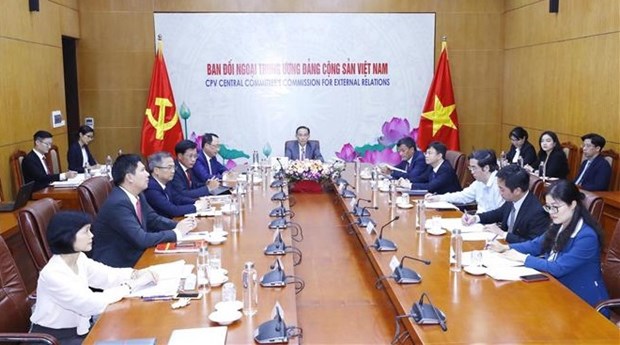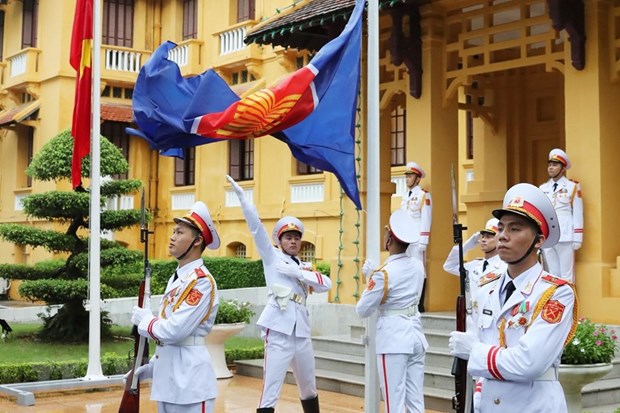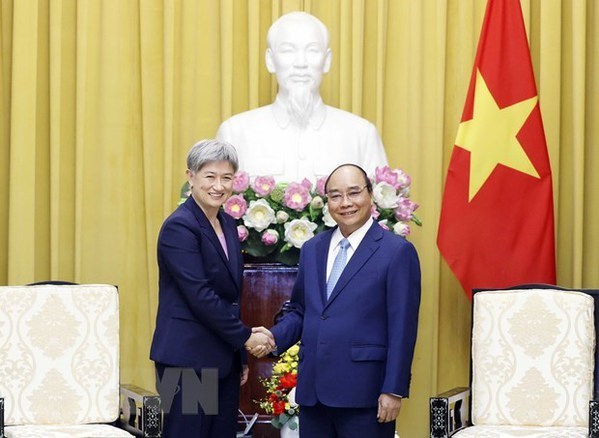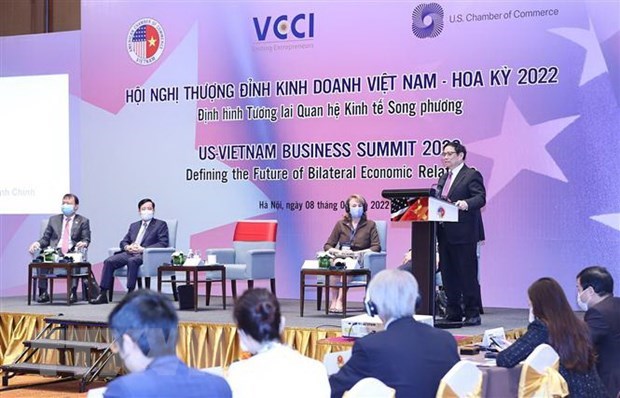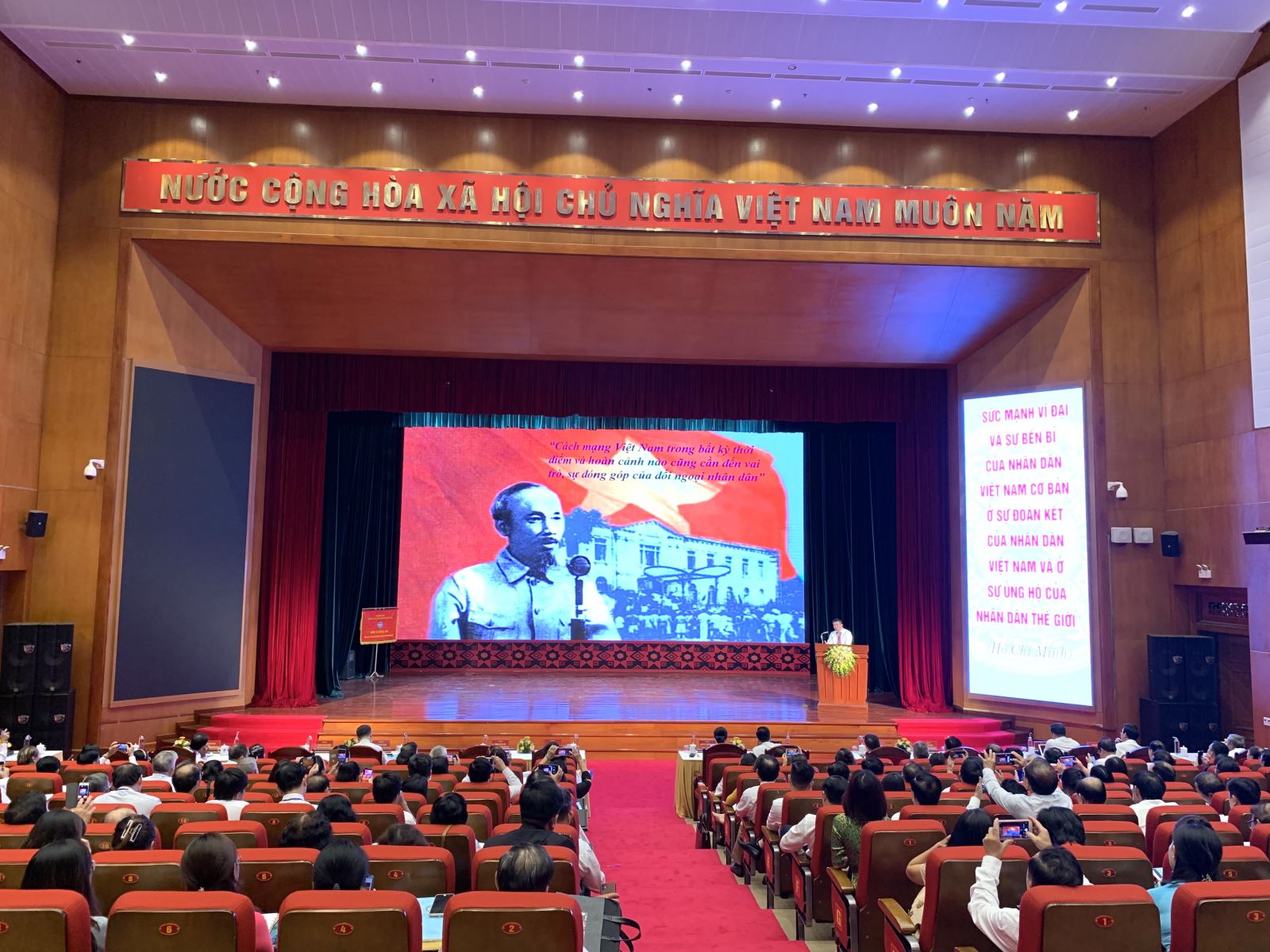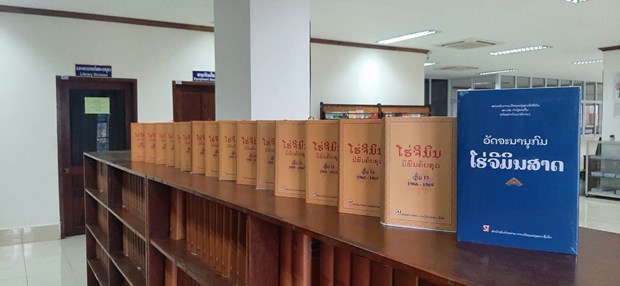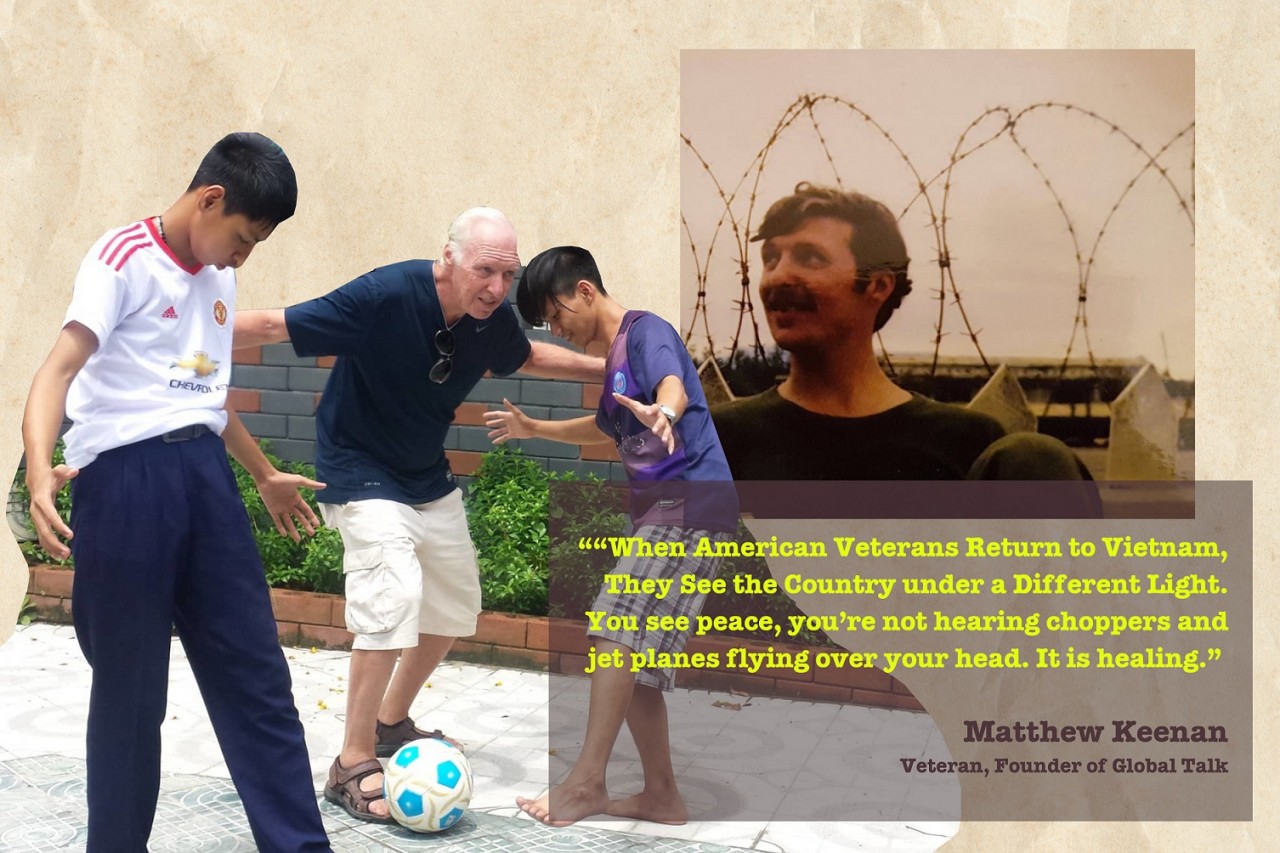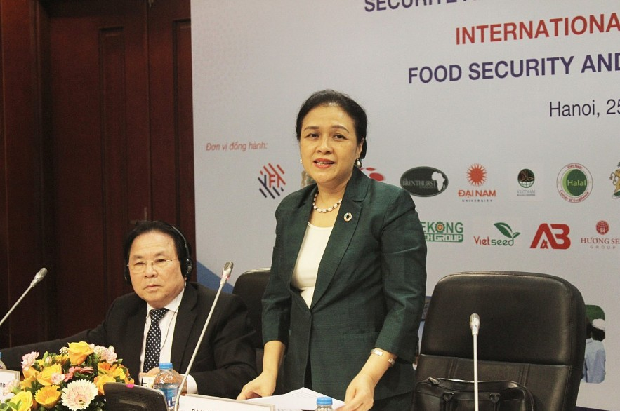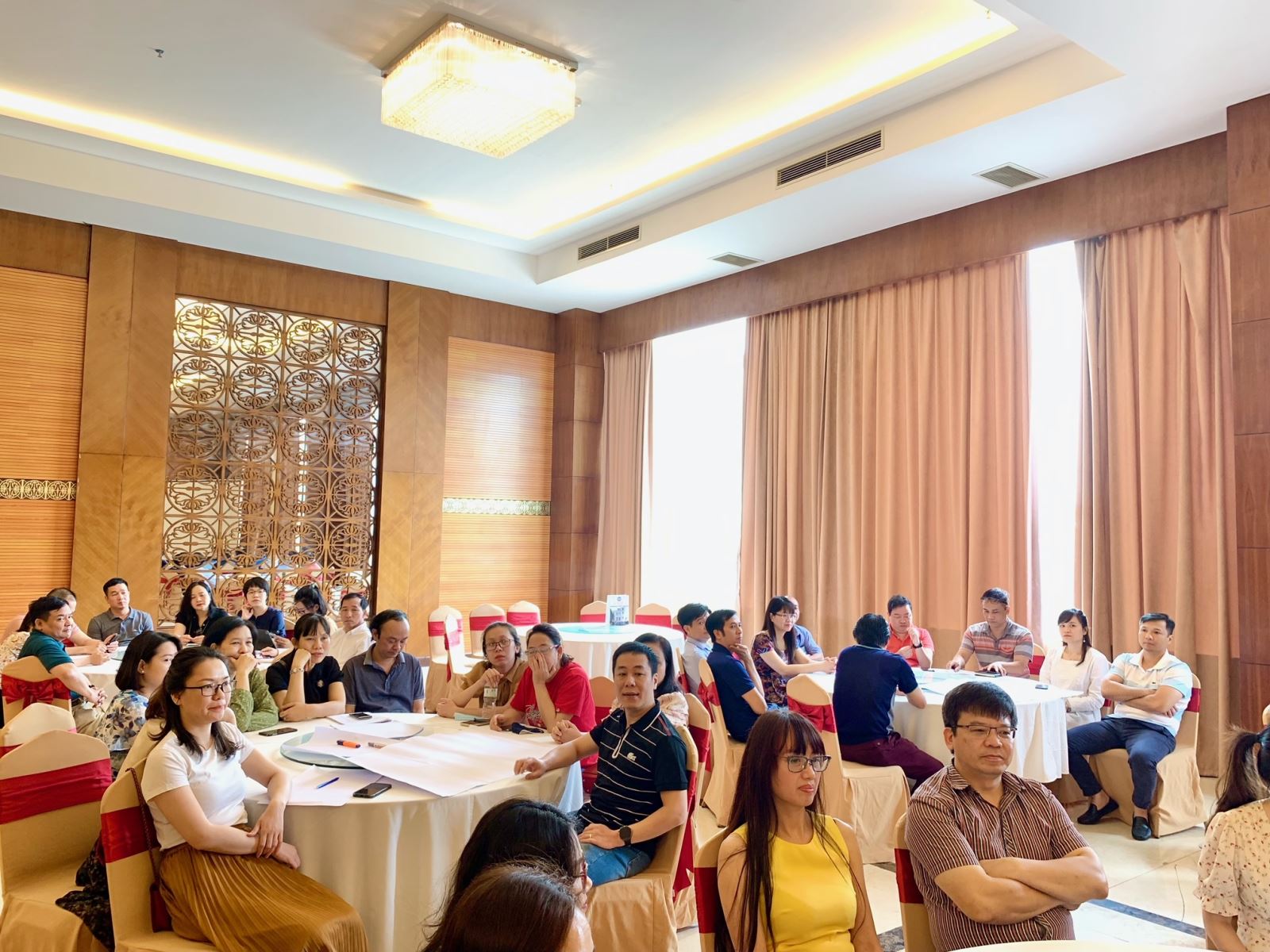How do you assess the potential of the bilateral relationship in the coming time?
Our bilateral relationship has never been better. Our two countries have transitioned from a history of conflict and division to a Comprehensive Partnership that now spans political, security, economic, and people-to-people ties. I am constantly amazed by the breadth of bilateral initiatives we’ve covered since I arrived. Recently, I met with dozens of US medical professionals on a joint humanitarian medical mission in Phu Yen; I spoke with US banks that are working to expand their operations in Vietnam; and I talked to young students preparing for their future careers at the opening of our new US - Vietnam Cooperation Center at the Diplomatic Academy of Vietnam.
We currently are working together on a variety of issues in different areas. This diversity of collaborative efforts is an essential element to continue enhancing our growing partnership. I am particularly encouraged by the robust exchange of visits of American and Vietnamese leaders, like the visit of Vice President Kamala Harris last year, the visit of Deputy Secretary of State Wendy Sherman in June, and Prime Minister Chinh’s recent visit to Washington. We also had the visit of Special Presidential Envoy for Climate John Kerry in February to discuss climate priorities, and we are expecting, even more visits soon. These visits have served as great opportunities for engagement between various government and business leaders, widening the scope of our efforts.
The United States is committed to supporting a strong, prosperous, independent Vietnam; ensuring a strong bilateral relationship between our two countries and mutual respect for each other’s political systems continues to play an integral part in supporting that effort. It is truly an exciting time in the history of our relationship, and I am hopeful that we will continue to work closely together over the coming years.
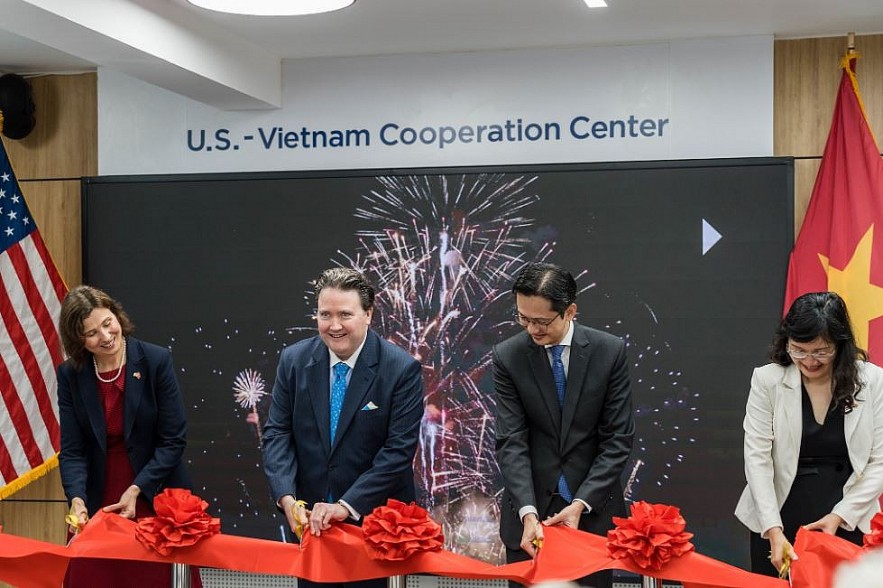 |
| Opening ceremony of US Vietnam Cooperation Center at the Diplomatic Academy of Vietnam. (Photo: US Embassy in Hanoi/ Facebook) |
To what extent do you believe our two countries' people-to-people relations can develop?
Maintaining and expanding our people-to-people relations with Vietnam continues to be a priority for the US Mission to Vietnam. The best way for our people-to-people relations to develop further is by creating personal connections and increasing cross-cultural dialogue.
A great example of how we do this is through our exchange programs. Year after year, our exchange programs, like the Fulbright program, help to successfully build bridges between our countries in academic, professional, and personal settings. In fact, over 1,500 Americans and Vietnamese citizens have participated in the program to date.
These citizen exchanges do not end with Fulbright. Before the pandemic, nearly 30,000 Vietnamese students were studying at American schools every year. We are optimistic that even more Vietnamese will study in the United States in the years to come. While abroad, Vietnamese students engage in meaningful intercultural exchange and learn deeply about the culture and history of the United States. At the same time, their presence will also inform a new generation of Americans about Vietnam today. We are also excited to support a number of initiatives connecting Americans and Vietnamese people right here in Vietnam, including the arrival of the first group of Peace Corps Volunteers to teach English.
When I think about people-to-people ties, I also reflect back on the full range of engagements I have had here in Vietnam in my short time as Ambassador so far. I have been encouraged by the great sportsmanship at the regional Friendship Cup soccer tournament, the collaboration between health care professionals during the visit of the USNS Mercy hospital ship, the steady interest by Vietnamese businesspeople to expand operations with US partners, and the enthusiasm of young Vietnamese students eager to further their education at US universities.
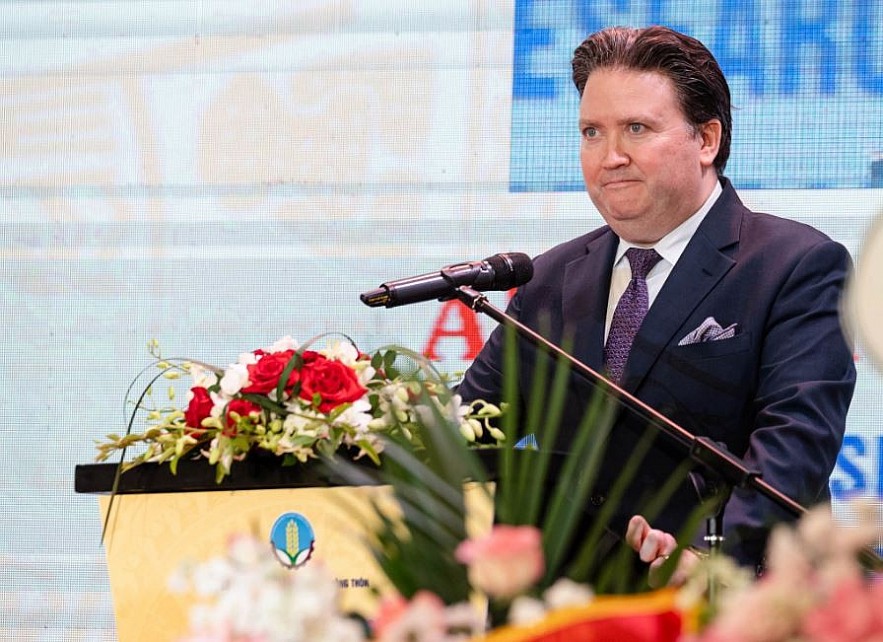 |
| US Ambassador to Vietnam Marc Knapper. (Photo: US Embassy in Hanoi/ Facebook) |
When discussing the friendly relationship our two countries have developed, it is impossible not to mention the contributions of American veterans who have returned to Vietnam – whether for tourism, or investment, or to find their friends and contribute to healing the wounds of war. Could you say a little more about the role they have played?
Tens of thousands of American veterans have made their way back to Vietnam over the years. My own late father was also a veteran, and he visited here three times when I last served in Vietnam as he strongly believed in the importance of reconciliation.
Many of the veterans that return come for short visits, but a significant number of veterans have enthusiastically volunteered on humanitarian projects, participated in Fulbright exchange programs, and worked on initiatives to improve the lives of everyday Vietnamese people, including by helping clear unexploded ordnance, teaching in universities throughout the country, and strengthening cross-cultural dialogue.
These veterans have played an essential role in facilitating the healing process of our two countries and have paved the way for our growing relationship through creating personal connections between the American and Vietnamese people.
Numerous American veterans have contributed to strengthening our bilateral relationship, and there have been notable instances in recent times.
When Secretary Kerry was here in February, he met with a group of Vietnamese and American veterans to hear about their experiences as part of our joint effort to address war legacy issues. Also, many veterans contribute by taking part in our Fulbright programs, making significant efforts to increase our bilateral cooperation.
One such example of an American veteran who has dedicated himself to helping Vietnam is Dr. Cal Mackenzie, a professor of government at Colby College in Maine. Dr. Mackenzie first came to Vietnam in 1970 as a soldier.
In 2012, he made his return to the country as a Fulbright Scholar at the Vietnamese Academy of Social Sciences in Hanoi. After his time with Fulbright in Vietnam, he has consistently been active within the country in partnership with Vietnamese colleagues through his work in business development and charitable initiatives.
Veterans are uniquely positioned to understand and appreciate the scale of the journey our two countries have been on together, but they are also getting older. How can they inspire today's young Americans to continue to nurture people-to-people ties between the two countries?
The Vietnam of today is so much different than the Vietnam of even ten years ago, let alone fifty years ago. Yet, many young people in the United States have still not been exposed to narratives of modern-day Vietnam.
Veterans, especially the ones who are actively involved in our bilateral affairs, offer unique perspectives on the evolution of the US-Vietnam relationship. They have seen firsthand how effective communication, connection-making, and cultural exchange is the key to fostering positive relations. Veterans who are now playing a positive role in increasing cooperation between the United States and Vietnam will serve as an inspiration to young people of both countries.
However, we cannot continue to rely solely on only a few voices. For that reason, we work to expand the bilateral partnership on a number of fronts, including economic cooperation, climate issues, people-to-people-ties, and our growing cooperation on regional initiatives.
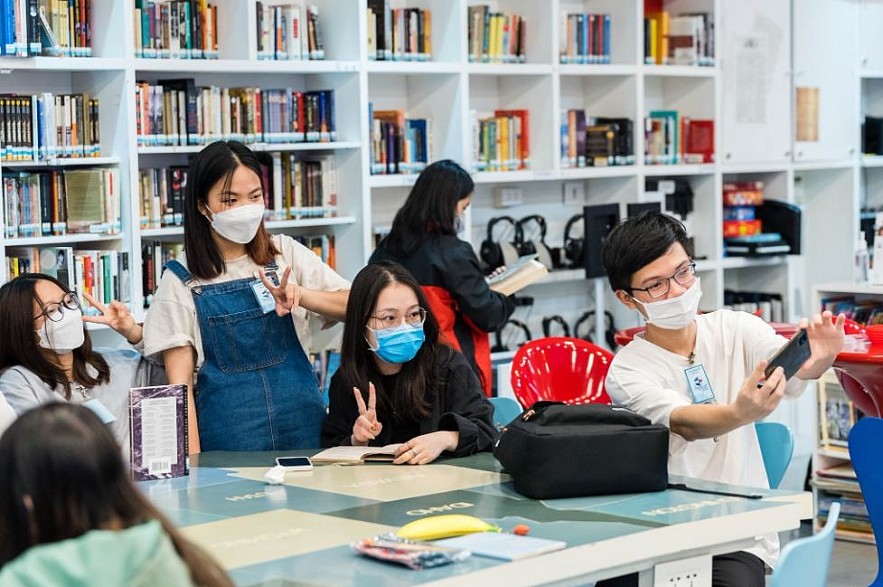 |
| The American Center holds regular activities for young people. (Photo: US Embassy in Hanoi/ Facebook) |
The continued friendship and cooperation between Vietnam and the United States depends on our two countries’ young generations. Do you see the next generation moving in the direction of closer cooperation?
To continue the progress that has already been made, we should continue to promote opportunities for young people in the United States and Vietnam to engage with each other to facilitate deeper mutual cultural understanding. Through US government-sponsored programs like the Fulbright scholarship and the growing number of US colleges and universities creating partnerships with Vietnamese universities, many American students and young professionals are now studying, teaching, and working in Vietnam. The experiences that they have here and the friendships they make will continue to shape the relationship between our two countries.
The future of US-Vietnam cooperation looks bright, and young people play a key role in ensuring that our continued friendship is strong and flourishing. Through our continued cooperation in so many areas, we are steadily laying the groundwork for more and more bilateral and regional engagement. The next generation will play a key role in building on these efforts to help both of our nations prosper together.
Source Thoidai

(1).jpg)
